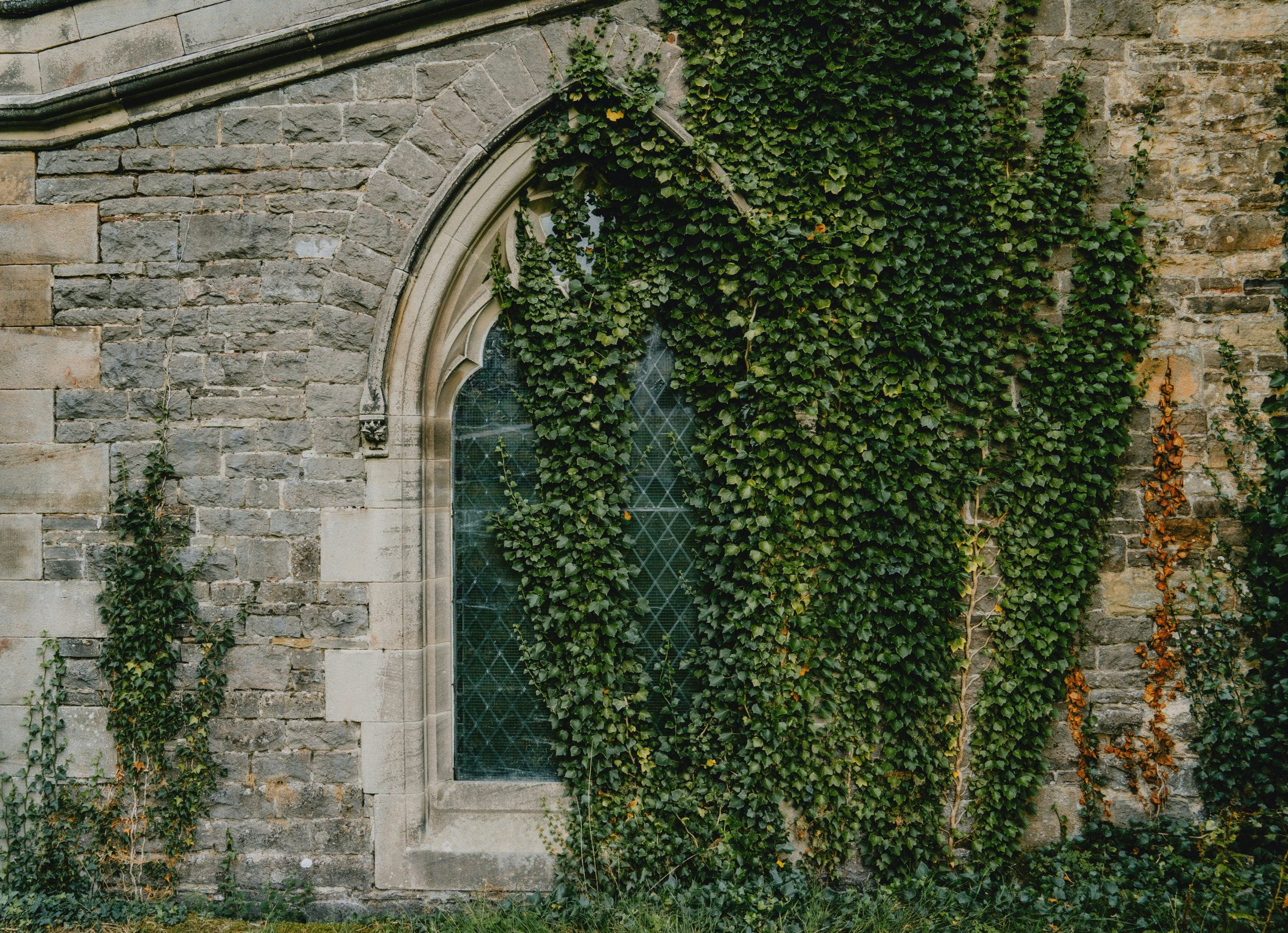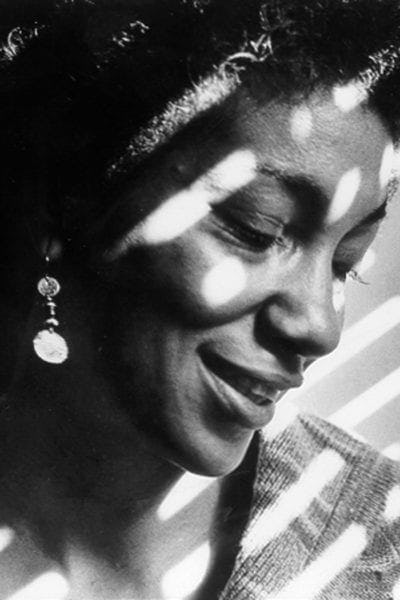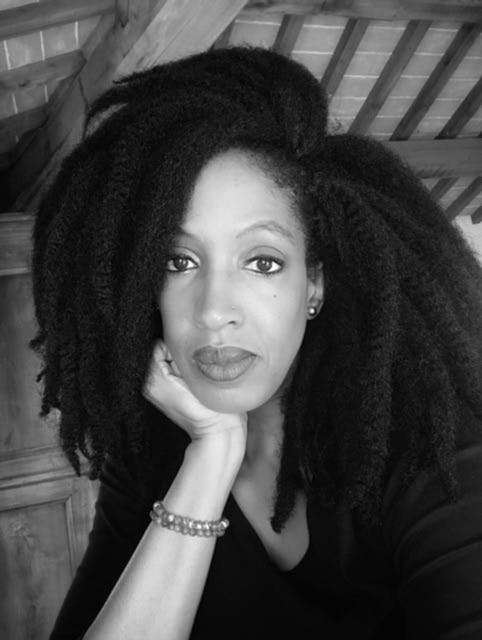Complementary colors are in fact direct opposites: red to green, orange to blue. Along the same line of logic, every emotion heightens its opposite. True presence begets the most soul-aching absence and vice versa. There is nothing like a pandemic to hit this lesson home.
This spring the ball rolled to a sudden stop, earlier than expected. There was no master’s degree graduation with lemonade and chocolate chip cookies, no jaunty march sweating in our robes up and down Prospect Street to the beat of drums and the whirl of flags. Instead, a gauche marker of sorrow showed up at our door steps a month later, a gigantic mahogany diploma frame, oiled to a shine. This was the school’s pandemic parting gift in lieu of pomp and circumstance. I slid it into my closet behind a row of high school dresses that I had given up trying to turn into jumpsuits with my mother’s sewing machine.
The job market had crashed, and I had gone home to Wisconsin with my boyfriend. Compared to a small East Coast City, it was a land of peace, but mostly quiet. The sound of leaves blowing, green and then gold as September crept past. A street lined with trees and mailboxes and a park where children played laughing on the swing sets, the pandemic precaution tape long since pulled away. We walked trails at a county park, ate Hmong egg rolls by the river, sifted through the discount dairy bin at the supermarket which was stocked full of vegan butter made from cashews and, inexplicably, quart upon quart of buttermilk. Life was easy, and I could not sleep at night.
It was all that quiet, I thought. The sound of sirens and people laughing drunkenly in the streets, shouting and slamming car doors, long gone. In the silence I found a new terror of reflection. I had gotten a Masters in Divinity of all things, but for what? I was going to move to Boston in the fall, far away from my family, to be with my boyfriend who was starting a PhD. Why was it that love always had to pull you in so many different directions? I was going to die one day, perhaps even soon – well anything was possible, and I did not yet know enough to know what I would regret.
Then there was, is always, the matter of God. I have no clarity about God, I only know that I want to believe in God and that I want God to be good and I want myself to be good. I want to go to church again and I want people to pray for me. Other people’s prayers are the last thing I trust in because I am convinced my own are neither heartfelt nor effective. Finally, I have come to a point, where I am not embarrassed by how much I want to believe in God, how much I need God even in doubting God. I am old enough to know that faith and innocence are precious things and to feel the lack of them. I am twenty-eight, and I am old enough.
This summer, on the day I turned twenty-eight, my mother and I swam across a seaweed-tangled lake and watched monarch butterflies come out of their cocoons at a butterfly garden. A promising start to my twenty ninth year, I thought. Except for the pandemic, except for the lack of dinner parties and festivals and friends that you could invite over just like that. Friends who you could hug before commenting on their perfume and new haircuts. No one had new haircuts these days. The pandemic was upon us and everything was different. Turning on the TV only to be greeted by the shocking sight of a hospital glutted with bodies.
Then there was that high-strung whine of solitude, breathing through a mask that made it feel as if only a fraction of yourself was there. As if no one could see you and you could not see them, not really. Family members and friends you hadn’t seen in months, their voices coming through the phone, computer, whatever device, suddenly sounding so far away and ephemeral. They were the voices of unicorns and sea creatures, a distant shimmering hope of both future and past. The grocery store was a mad panic, there was no toilet paper on the shelf at Trader Joe’s. And then, back at home, in a cocoon of silence, you felt the abundance of time seeping into everything, turning last week’s birthday cake stale and then the crackers in the cupboard, bought for whatever party that was never going to happen.
In order for absence to be truly stark it must be preceded by abundant presence. Consider, yes, pandemic-induced isolation, but also, for example, the moonflowers, which I planted in my mother’s backyard this spring. We waited so long for them to grow. Would the five-year-old seeds germinate? Would the reedy stems produce any flowers? When the flowers finally unfurled into large plate-like stars, smelling for all the world like some lemon fragrance bought at God’s beauty shop, I felt a measure of small, safe joy that warmed my damp core, a modicum of peace as sure and silver as a raindrop. Magic from a seed. After so long, magic. And then the next day, the creeping rot, the withering of the starry plates into drooping yellowed sacks, the beetles whittling away, stenciling the flowers back into nothingness. When they plummeted to the ground by night fall, I felt betrayed. I felt a bitterness on my tongue and a sick ache in my stomach.
If absence is painful, then so too, of course, is presence. This, too, I can tell you from personal experience. About six months before any talk of pandemic, I spent my twenty-seventh birthday at a monastery in New York with my boyfriend. I was craving silence and nature and maybe what I imagined might be some kind of communion with God. Some silent assurance in the monk’s faces or the way they walked, or the way the birds sang a little brighter just beyond the monastery doors, the way the air tasted like honey, and the river flowed by carrying with it the past, present, and future.
It was idyllic in many ways: the birds, the bees, even the carp flinging themselves out of mossy-colored water. We sat on a bench and watched a family of three groundhogs eat clover. We went to Mass and Compline, we read Henri Nouwen and Thomas Merton in the dusky lamplight of the self-serve library. All the while the silence hovered, it fed on the very air. It ate its fill and then coiled around our feet, warm and vibrating. God, I said, God, I’m here, I’m turning twenty-seven here at a monastery. And I did not know whether this was a prayer or lament or a joke. Maybe it was neither or all three.
The monks were kind and generous. They remembered our names, hugged us during the passing of the peace, and mostly left us alone to sip mint tea on the porch, to stare up at the sky in wonder and fear. As the dusk fell on the first day, my boyfriend and I found ourselves sitting on that same groundhog-watching bench. As the day brightened into night, we found ourselves in another universe almost, staring down the hill at an inky field misted with fireflies. The river, that luxuriant oil of time sailed by swans and tug boats, spread out dark and glassy below. Hovering above it all was the moon, marbled with light. For a moment all was perfection. But perfection, always it seems, exists on the verge, a small glass bottle full of golden light ready to be knocked off with a wayward elbow.
Out of the holy darkness rose a voice. It belonged to my boyfriend. “Please don’t grow older,” he said, his voice strangely choked. I realized then that we were only pretending at enlightenment, every college degree we had earned and were trying to earn, every cheap, beautiful handmade thing I had scooped up from a thrift store, every birthday gift and hastily snapped picture, every desperate prayer, everything was an amulet against fear, against death, against the end of ourselves as we knew them. Against what it would mean to hold out my hand and not find his, or anyone else’s, to press against, what it meant to look at a world and see every single thing as an opportunity for loss.
We were here at a monastery, and we were both trying very hard to believe in God and old age in which our grandchildren would sit on our knees and blow dandelion wishes around our cotton-like heads. But as the night fell and the crickets sang louder, our doubts began to fissure and our minds began to wander with an electric fear, the sizzling of a damp pot touching the burner.
I had not been afraid of death in a long time, not since I was young enough to live with my mother and crawl into her bed at midnight, finding comfort in the glow of her reading lamp. But ever since I had met my boyfriend, the old terror had come creeping back. And how well I remembered it. First the world narrowed; there were no longer trees or dogs or a bowl of lemons sitting on top of the refrigerator. There were no longer happy memories of Christmas or last Friday. There was only an all-consuming pinpoint prick of fear jabbing at my core; all I could see was emptiness and fog and the final stoppage of everything. My throat went dry, my heart spasmed, my brain somehow felt cold.
It was like Don DeLillo’s White Noise which I once read part of for English class. I could not tell you exactly why I did not finish it except for that those pages did not so much speak to me as buzz. They buzzed very quietly, shifted almost imperceptibly, like a tide withdrawing from a great lake. All that was left in their absence was a bleached shore. A bleached shore was exactly what I wasn’t looking for. The only thing I really remember from that book was the couple’s fear of death, the arguments over who would die first. An eerie kind of panic that I have since recognized in myself. That insatiable longing for forever. Forever, my college world religion teacher told me, is a dangerous concept. Forever makes us mistreat the here and now. You’re never going to take care of the grass this side of the fence, if you can already see the unlatched gate to the other side. But, I always wanted to say, But…
Here is the thing. My boyfriend once got a fever, just a fever, long before the fear of a pandemic ever crossed my mind. And that is the thing, the way his face looks when he is fast asleep, caught in the midst of a fever-dream. The way his skin burns when I touch it. The way I can only begin to imagine the way his parents felt leaning over his hospital bed over some childhood sickness those years ago. He tells me he could see colors that only exist on the periphery of the rainbow. Both the doctor and his parents waited for him to slip from their hands like a dream, but the dream wavered and then held. He stuck to life like a jellyfish washed up on the shore.
Maybe it is that we are young. Maybe it is that one day our love will simmer to a glow; it will be pleasant, but no longer necessary. Maybe one day we will have had our fill of life, and death will terrify us less. But now, I look into his face caught there in the monastery moonlight of paradise and feel a kind of existential horror that must be swallowed away with talk of the box of Betty Crocker cherry chip cake that is sitting in my cupboard 200 miles away, the cake we will eat tomorrow with neon pink frosting, the happy chatter that will surround us when we are far away from this monastery, this bench, and these fears.
I have not only felt this for him. When I was a child the absence of my mother inspired a brilliant, teeth-chattering panic in me. When she left for Bible Study I cried so hard that the babysitter called her, and she came back, verses unstudied, the Book of Job still a mystery. When I was forced to visit my father, I would kick off my shoes and lay on the floor in the backseat, weeping. I would dream of my mother’s death at night. I have a vivid memory of watching The Cheetah Girls in my cousin’s bedroom only to have the urge to sprint down the stairs and make sure that my mother was still sitting in the living room, drinking tea with my aunt, and breathing. Absence and presence, fear and love, are different sides of the same coin and we cannot truly know one without the other. Perhaps we are destined to always be caught between the two. Wrenching pain and wrenching love, the taste of honey and then vinegar. “I have come that they may have life, and have it to the full,” Jesus says after all, and it hurts to be fully alive. There is no other way.
Oh, perhaps it is that presence and absence are one and the same and so it follows that the acute absence of God is the same as the presence of God, I could not tell you. Whether God turns to me when I weep into my pillow over a prayer stooped with gravity, a prayer which barely has enough faith to lift it, I do not know. The ball turns and turns and turns, the coin flips, and we sit, swaddled in silence, waiting with the gray patience of trees, slowly stirring up sugar to outlast the snow.
Heather Burtman is a recent graduate of Yale Divinity School. Her hometown is Eau Claire, WI and she currently lives in Boston. She was raised somewhere between non-denominational and Baptist and has more recently attended an Episcopal Church. She is still searching for a church home and exploring what it means to hold space for both doubt and faith. She has previously been published in Image Journal and in the New York Times Modern Love section.
Discover more from Heather Burtman.









